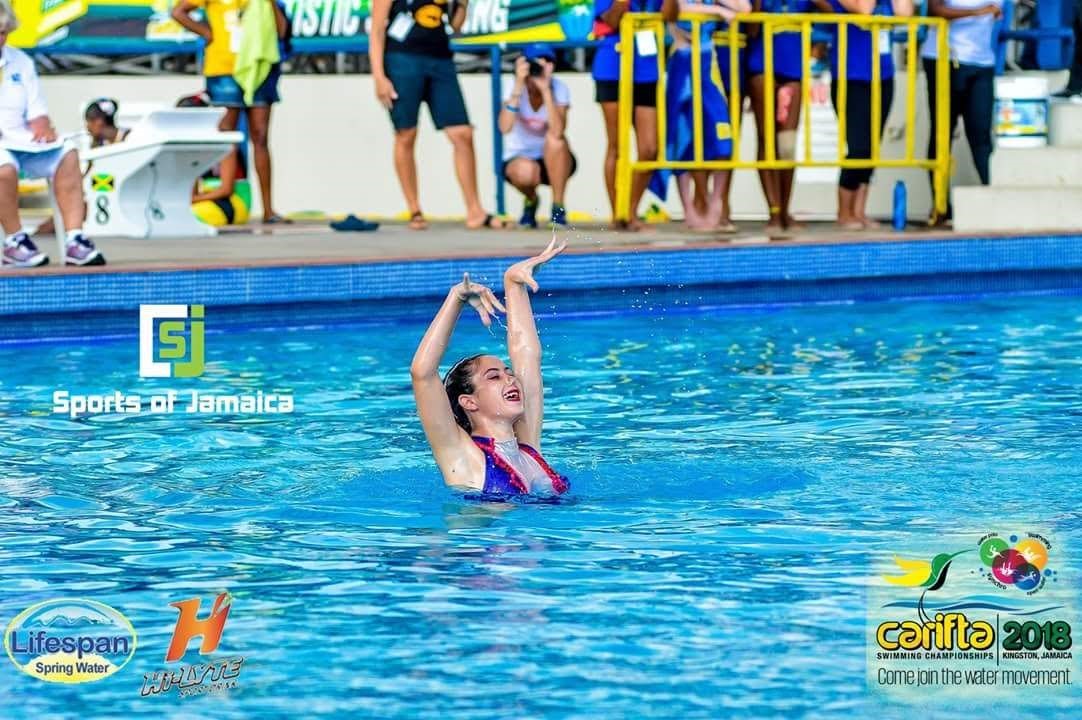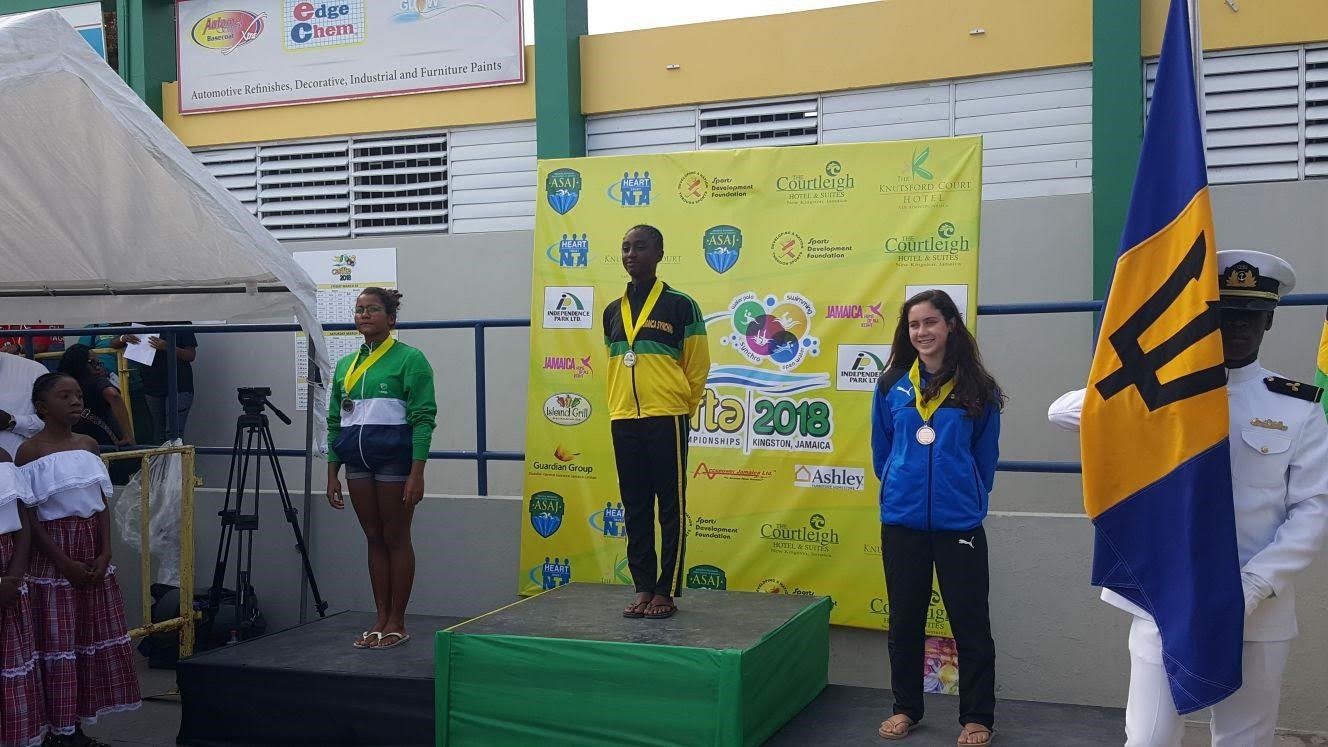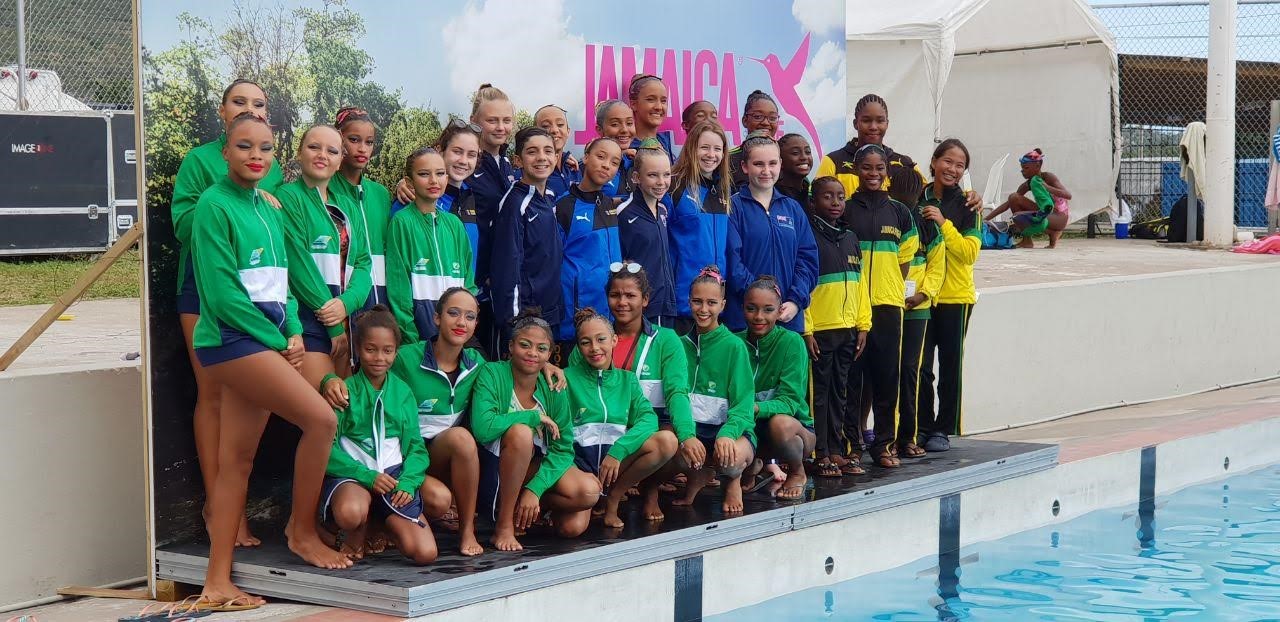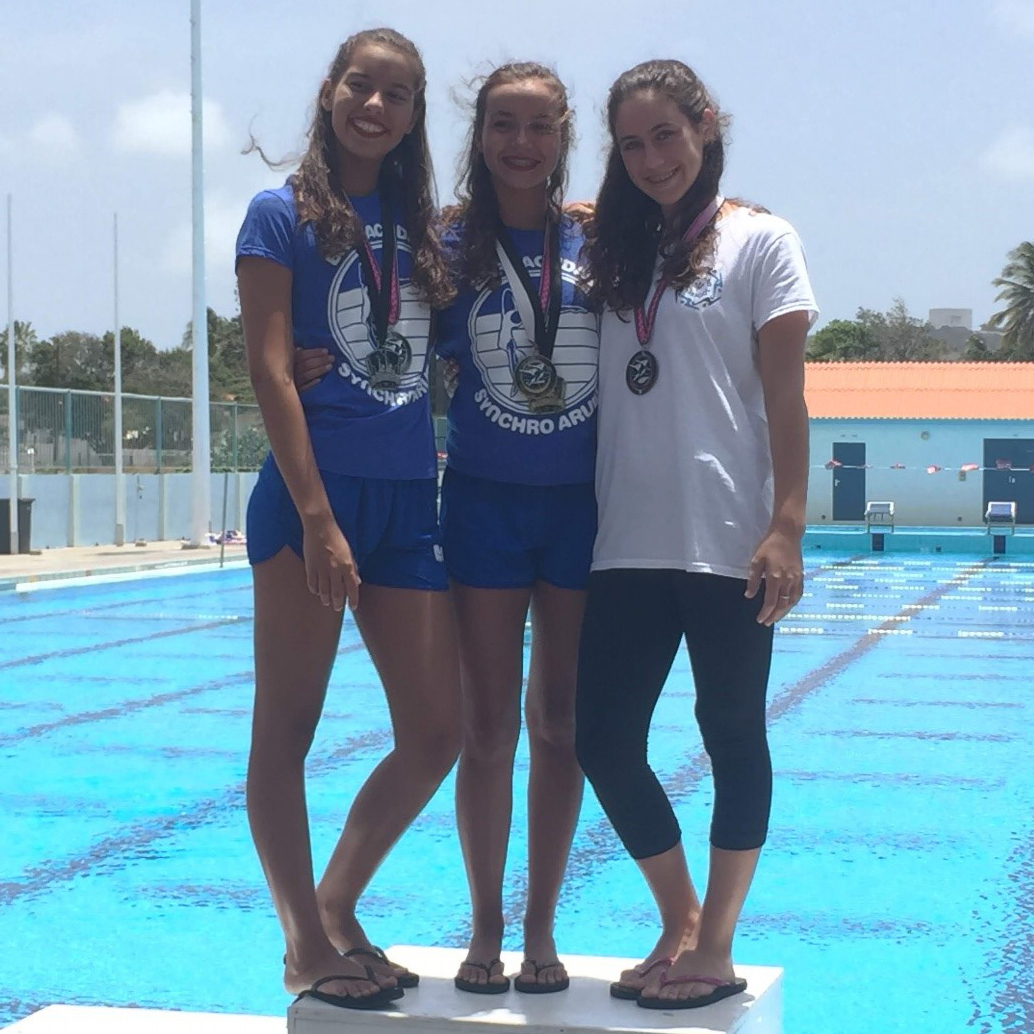We recently caught up with Artistic Swimmer and University of Kent Sports Scholar Erika to see how she managed to stay active during the Covid-19 pandemic, her experience of the Scholarship Scheme, and joining the women’s football team.
What were your sporting ambitions whilst growing up and before arrival at University?
As a multi-athlete from a very young age, my love for sports and physical challenges grew into a passion. I thrived, and continue to do so, in sports and am constantly interested and eager to try new activities. When I was younger, I was longing to find a unique sport to excel in, or at least brag about to my friends… and consequently found the perfect sport for myself! I joined the synchronized swimming team, training and competing for 8 years. As I got older, I became fixated on the Ironman triathlon and noted how my sports training had already created a solid base for it. Similarly to my past ambitions, this one is unique and challenging and although I have yet to commit, out of fear of failure, I do hope to organize and manage my time at university in such a way that I can conquer this goal!
What are you studying at Kent and what are your career ambitions after graduation?
I am currently studying Architecture at Kent. With some long study years ahead, I hope to graduate from Kent and continue to pursue the title of Architect studying at other top universities. Further along the line, I would love to be a part of a company that focuses on sustainable and humanitarian projects as well as restoration of historical cities and spaces around the world.
You are an International Student from Barbados, what attracted you both the UK and Kent in particular to study?
I have been asked this question several times and am still not sure how to reply! Although life on an island sounds like paradise, I wanted to continue my education at a top English-speaking university, thus the UK seemed like a valid choice, with the weather change being exciting… at first. After settling on the UK, I applied to Scotland and throughout England, deciding that although the change in weather would be fun, Scotland might be a bit too drastic. So, with an equally as enticing pull as the Scottish weather had a push, Kent, with its cathedral and architectural elements within the city centre as well as the universities’ international inclusion, resources and possibilities offered, was a perfect choice for me!
Can you comment on the sporting scene back home in Barbados, what are the key national sports and what sports are children brought up on at school?
I must say that Barbados hails sports and makes the most of the weather with outdoor activities from a young age. The national sport is cricket, which quite embarrassingly, I am not particularly knowledgeable of, but there is also a high level of football, swimming and tennis. At school, sports are highly encouraged with the aforementioned most common, as well as track and field and cross-country running, which are a true challenge in the year-round scorching sun. One of the lesser known ‘sports’ on the island, enjoyed by all ages, is paddle racket and road tennis, which require minimal equipment and no court, easily substituting the road for the beach on a breezy day!
Can you comment on your earliest memories of swimming and any competitions you were involved in at a young age?
My earliest, and fondest memories of my childhood involve the swimming competitions. My siblings and I would go straight to the pool from school to begin training and warming up for the weeklong competition. The teams would group up, playing music, eating snacks, and running around as an excuse to stay warm pre-race. The stands would be filled with parents and families cheering on the athletes with drums and makeshift instruments. Not only was the environment friendly and happy, it was also exciting and motivational, something that we all wanted to be a part of and wanted to succeed in. This was a perfect example of a healthy atmosphere for young athletes and created children and young adults who fell in love with sports and becoming a better version of ourselves, making the team, the coaches, the parents, and ourselves proud of our accomplishments. These national, and international competitions happened several times a year at home, as well as away on different islands. I do recall travelling to St. Lucia with the team and remember how fun and supportive it was. My most vivid memory was hearing my name called for the podium, running towards some team parents who threw me into the Barbados tracksuit, which was multiple sizes too large, and me running onto the podium, only then realizing that I had won my age group at 8 years old. That feeling of contentedness with your performance, to then realize just how well and recognized it was, makes you want to do it all over again, forever!
Your sport is certainly unique and you are the first Synchronized Swimming Scholar on record at Kent – how did you get into your sport and progress to the level you compete at now?
It is just as unique in Kent as it is in Barbados, which is exactly what drew me to it. I had been swimming from a young age, as well as dancing and one day saw the team competing at our only pool. I fell in love with it before I even started, as it was a perfect combination of the sports I already did and enjoyed. What kept me going was definitely a love for the strenuous sport it is and the physical challenge it never stops being.
Can you explain the basic format of Synchronised Swimming as well as how individuals, pairs and teams are then scored technically and creatively?
The basis of synchronized swimming is figures; these are short components that range in difficulty. These components are then placed into routines, and similarly to any on land dance, a choreography is made with varying figures and additional steps to create an entire piece. These routines are then scored on execution, artistic impression, and difficulty.
Can you explain how the Olympic Synchronised Swimming format works?
The Olympics follow this same judging system, obviously with a strict and high standard. Additionally, the figures used at this level are of the extreme difficulty, to be executed with precision, the utmost height out of the water and perfected in synchronization.
Your sport has had limited exposure in the UK, how would a junior swimmer get involved in artistic swimming in this country?
Getting started in the UK would mean getting involved with any team and just giving it a go. Even a swimming and dancing background will boost chances of slipping straight into a spot on a team.
How important is physical activity and sport in complimenting your studies at University and what advice would you give to new students arriving next year and looking to engage in a new sport or even swimming for the first time?
For me, university life is a combination of physical activity and education. I would not be happy, healthy, or complete without it. I say this with regards to not only the standard it puts me at and the impression it gives to universities and future jobs, but also for my own mental health. The only advice worthy of giving is do it. Even if you have never done it before, do it! It’s an experience which I can guarantee will be a blast, it is the perfect way to meet new people, do some physical activity and challenge yourself away from the demands of your course. Do it!
The challenges of Covid-19 have limited competitions this season and seen many pools close both in the UK and at home. What have you been doing to stay motivated and prepared for sport outside of the pool?
This year has been an intense one regarding all sports and I am happy to have been on the scholarship scheme with other athletes experiencing the same difficulties and overcoming them with such resolve. I consistently exercise, whether at the gym, running, hiking or, very luckily, swimming in the warm sea at home. These physical activities contribute to the overall maintenance of my strength whilst also helping me to maintain a sense of perseverance and motivation for the future.
You joined the women’s student football team this year, how has your experience as being part of a student club been and are you planning to continue playing football alongside a return to swimming next year?
I was nervous to join the team as I am much more of an aquatic athlete than anything else, but I could not be prouder of myself for living through my own advice and doing it! It most definitely enhanced my first year of university, allowing me to make plenty of incredible friends and memories. I will be returning to football, as I am now also on the committee for it as one of the social secs. So, lots of sports and socials to come this year!
Obviously, the pandemic has affected all sports and all Scholars, have you managed to continue to train and what are your short-term goals as restrictions ease?
I have not managed to get in a pool this year to train as I have quite unfortunately been traveling back and forth with bad timing between the UK and Barbados, leaving an easing lockdown to enter a more restricted one. My main goal is to get into the pool, at the very least to get back into the rhythm of swimming, to then pursue synchronized swimming again.
Despite the pandemic, you have remained in Kent and on Campus for most of the academic year, what challenges have you faced completing your course and navigating remote and digital delivery and what are you most looking forward to next year now we are coming out of restrictions?
My course was very challenging, and I must say that studying remotely as I did for a few months did not help as I felt much more on vacation than at school. However, it strangely allowed for a smooth transition for me, moving from home to the UK and allowed me to incorporate fitness into my everyday life quite easily. I am eager to meet more of my course mates this year and work alongside them face-to-face, in the workshops and on projects.
Your first year at Kent has certainly been unique – however having been in Canterbury and on Campus last year what advice would you give a new student starting their studies and arriving on Campus this September?
Firstly, congratulations on your success and hard work. It is time for you to have fun and enjoy your uni life and the beautiful campus and city. My strongest piece of advice, which I need to remember to listen to, is to not procrastinate on your studies as they are of the utmost importance, and the faster you finish, the more time you will have to attend the countless social events. It’s going to be a blast, just work hard, and enjoy it!
If you’re interested in becoming a sports scholar at the University of Kent, check out our Scholarship webpages for more information.




